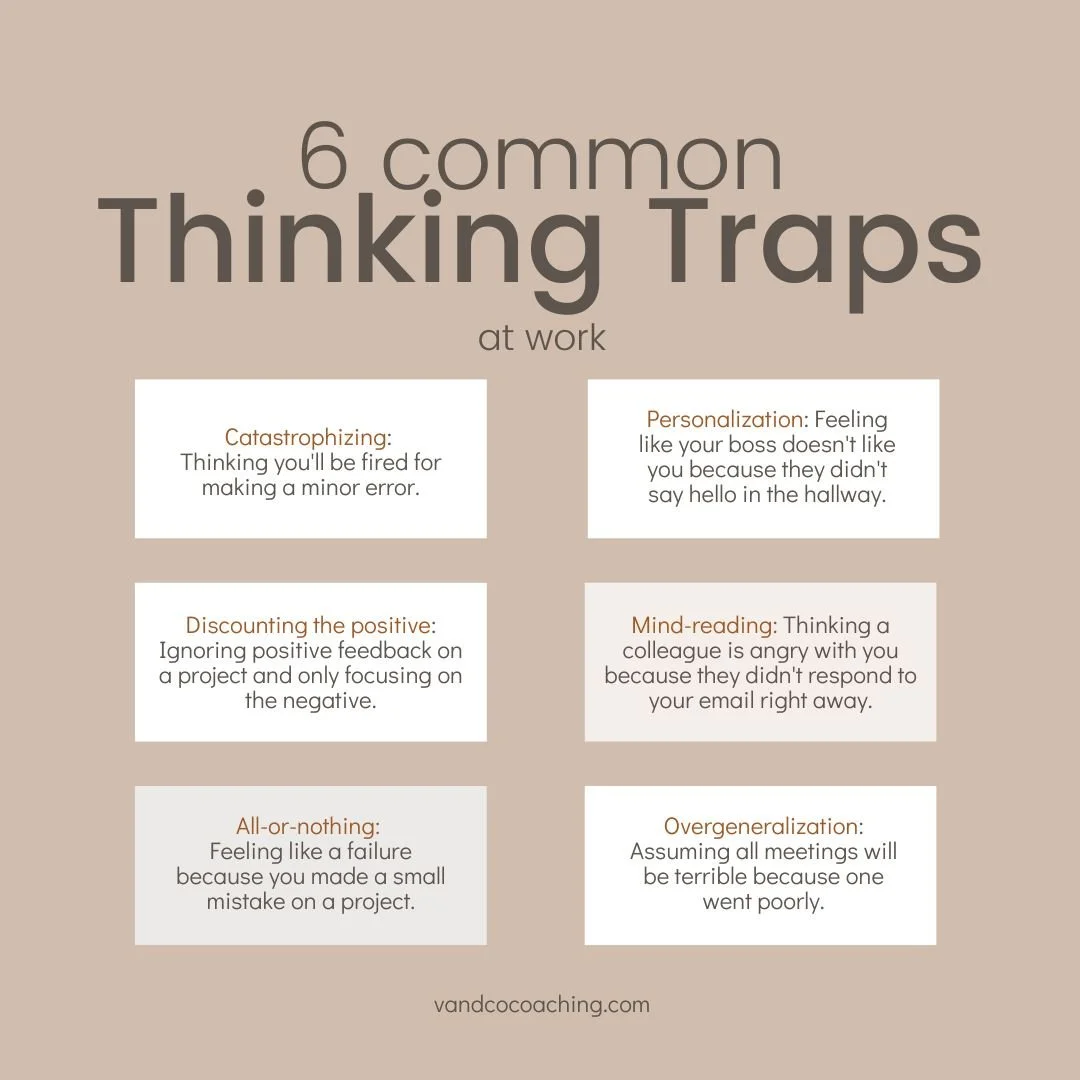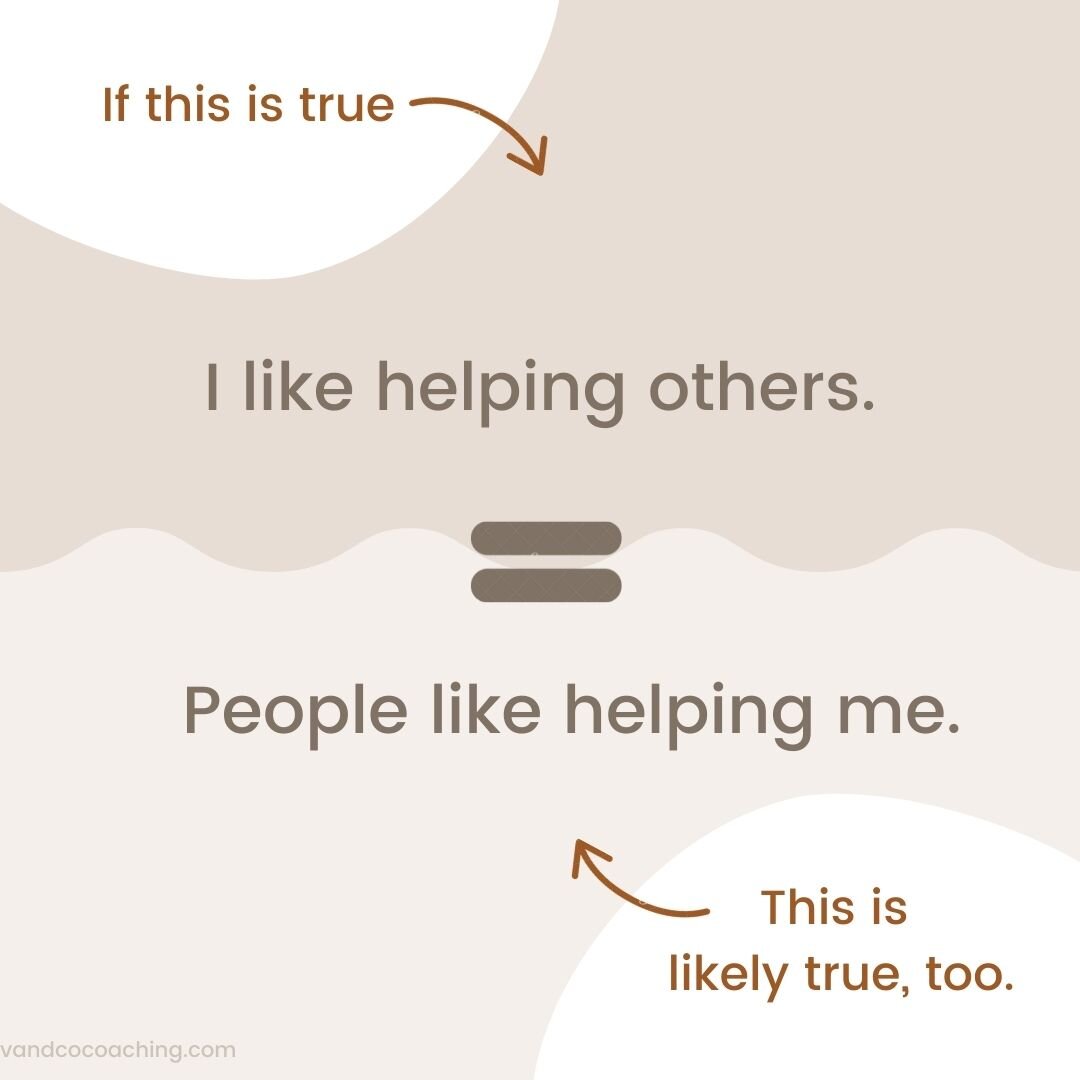6 Common Thinking Traps at Work
Just because you think something doesn’t mean it’s true.
A thinking trap, also called cognitive distortion, is a pattern of biased or irrational thinking that can lead to misperceptions, negative emotions, and unhealthy behavior. Here are the 6 most prevalent Thinking Traps my clients share, perhaps some of them sound familiar to you? By understanding and challenging these patterns, you can regain control of your career and well-being.
1️⃣ Catastrophizing: Assuming the worst possible outcome. Example: Thinking you'll be fired for making a minor error.
2️⃣ Personalization: Taking things personally. Example: Feeling like your boss doesn't like you because they didn't say hello in the hallway.
3️⃣ Discounting the positive: Overlooking your successes. Example: Ignoring positive feedback on a project and only focusing on the negative.
4️⃣ Mind-reading: Assuming you know what others are thinking. Example: Thinking a colleague is angry with you because they didn't respond to your email right away.
5️⃣ All-or-nothing: Believing you either have to be perfect or it's a total failure. Example: Feeling like a failure because you made a small mistake on a project.
6️⃣ Overgeneralization: Making broad conclusions from a single incident. Example: Assuming all meetings will be terrible because one went poorly.
Overcoming these traps requires challenging your thoughts. Start to notice your thought patterns and gain awareness when these thoughts come up for you. Then, take a step back and ask yourself if they're based in reality.
Take control of your career by taking control of your thoughts ❤️






















